No one can deny General Sherman’s consummate ability as a soldier, but those of us who opposed him in Georgia and in South Carolina can never believe him to be the kindly gentleman and friend of the South which Major Boyd represents him.
Just when a man begins to believe he’s seen and heard it all (in a manner of speaking), fate will sometimes throw that man a sinking, inside curveball the likes of which he has never encountered before, and often lofted from the most bizarre and unexpected of places. He in turn will either take a desperate swipe at it, or he will watch it whiz by him in frozen awe.
No analogy is perfect, but the foregoing paragraph fairly describes my initial reaction the first time I heard someone – anyone – say that the Nero of the 19th Century, General William Tecumseh Sherman, was a lover of the South and a warm admirer of the Southern people; that it was this Nero’s intimate knowledge and love of the South in point of fact that was the casus belli for his determination to make Total War on her aged, and her defenseless women and children in the WBTS. Indeed, by one account at least, General Sherman was a Northern man merely *by birth*, otherwise he was a Southern man through and through. If these stunning revelations happen to be new to you, I humbly direct your attention to my Nov., 2022 article titled, Et tu Dr. Robertson? wherein, in keeping with my analogy, I take a desperate swipe at the claim, if only to make contact enough to foul it out of play.
Once I’d written the article just mentioned, I considered the matter closed so far as my interest and involvement with it going forward was concerned. However, and as so often is the case, fate seems to have had a different future in store. Roughly a year and a half later (April-May 2024 timeframe), this “closed matter” opened itself to me once again, only this time in a much more informative way than it had been introduced previously. I say the matter “opened itself to me” because I certainly wasn’t pursuing it when it suddenly appeared for the second time. Ready yourselves, y’all, ‘cause we’re fixin’ to get to the bottom of this and potentially put the matter to rest for good.
The author of my epigraph heading this essay was a Southerner named James Hugh McNeilly (1838-1922), of Nashville, Tennessee. Rev. McNeilly served as chaplain in the Confederate Army (49th Tennessee Infantry Regiment) throughout the war, and was a first-hand witness to the depredations the Sherman-led wing of the “Grand Army” savagely inflicted on the South in their infamous March to the Sea expedition through Georgia and the Carolinas. Rev. McNeilly’s statement forming the epigraph concludes a lengthy missive he wrote in direct response to a curious item that appeared in the September, 1910 edition of The Confederate Veteran (hereinafter The Veteran) magazine. The item to which I refer was a heretofore unpublished, posthumous tribute to General Sherman purportedly written some years before by Confederate Major, David French Boyd (1834-1899).

Noteworthy in this connection is that this “gushing tribute” (-S. A. Cunningham) was first made public fully forty-five years after war’s end, whereas Maj. Boyd allegedly wrote it sometime between General Sherman’s death (1891), and his own death eight years later. Parts of the paper at least are also of questionable authenticity, given that Maj. Boyd purportedly wrote it at the behest of a Union Brevet General, by way of whom the paper ultimately landed on the desk of S. A. Cunningham at The Veteran. As to the question of its authenticity in part, a self-described lifelong friend and comrade of Maj. Boyd wrote the following to the forenamed editor:
It is true there was a friendship between Boyd and Sherman till Sherman’s death, and Colonel Boyd was a man of as warm and tender feeling as a woman, yet he was not the man to go to Sherman’s grave and shed a tear over it. He was not that kind of man, and he was totally incapable of making any such allusion to President Jefferson Davis as you attribute to him. That part of Dr. Green’s and Colonel Heath’s narrative is all a myth. They didn’t know Colonel Boyd as I knew him.
It should be noted in lieu of moving forward with our investigation that “that part of Dr. Green’s and Colonel Heath’s narrative” alluded to in the above quotation is actually included in the paper whose authorship is attributed to Maj. Boyd, so you see therein that this correspondent in particular was already of a mind that key parts of the narrative at least were really the products of Dr. Green and/or Col. Heath, and not of his friend, Maj. Boyd. This is one of several reasons for which I wrote earlier of the “questionable authenticity” of the Boyd sketch.
To close his letter just quoted from, our suspicious Veteran correspondent gently advises Mr. Cunningham to apply stricter standards going forward in verifying purported authorship of, in this case, personally insulting, insubordinate statements he was quite positive Maj. Boyd could never and would never bring himself to make towards his former president, to wit:
Had Virginia not seceded, Lee would have commanded the Union army, and what a thrashing Jeff Davis would have got!
Meanwhile, another correspondent wrote to the editor that he had just as soon cancel his subscription to The Veteran forthwith as to see it publish a single item more like unto the “Boyd Gusher,” and its idolization of the fiend, General Sherman, or in any way to entertain the slightest hint of justification of the North’s scorched earth war policies.
For his part, S. A. Cunningham politely, yet firmly, stood his ground in answer to both would-be critics, defending his decision to publish the paper in its entirety just as his office had received it and in spite of its sender’s Unionist ties and sympathies, while also reminding his less tolerant detractors of his own scathing editorial condemning Maj. Boyd’s “gushing tribute” prefacing the paper’s appearance in the selfsame edition; and of his positing therein that apparently Maj. Boyd had been so thoroughly hypnotized by Sherman as a young man that his mind was thereby rendered impotent in later life to free itself of Sherman’s diabolic spell. As to questions of authorship and authenticity, Cunningham essentially dismissed them out of hand.
This sketch of Captain Boyd repels fraternal feeling for Sherman, since it establishes that he knew the Southern people so thoroughly. It is repelled indignantly. So much space for the Boyd tribute is not only to give that part of General Sherman’s history that is least known, but to establish that his wickedness is all the greater.
Editor, The Veteran, Sep. Issue, 1910
Perusing the few sources I have quoted in this connection, one can readily see how deeply this issue cut and how it divided natural friends and wartime comrades on the Confederate side in the several months immediately following the paper’s publication. Setting aside the questions of authorship and authenticity, the important point to take away from the entire exchange, as it relates to Dr. Robertson’s teaching in any event, is that the contents of the Boyd paper were almost universally condemned and repudiated more or less vehemently by all who participated in the discussion.
In my first article broaching this topic, I was short on information and long on tolerance, content as I was, albeit reluctantly, to give Prof. Robertson the benefit of the doubt by way of ascribing “good intentions” to his motive(s) for planting the seed of the myth of General Sherman’s supposed love of the South in the fertile minds of his audience(s) (as y’all well know, and as I’m sure Dr. Robertson well knew, a seed planted in fertile soil will grow to produce its own kind of fruit and none other if and when its life reaches fruit-bearing maturity). By “short on information,” I mean I then had no knowledge of the claim’s source or origin, nor even of where to begin searching for it if I would; nor of the broader discussion of its merits, or, rather, the lack thereof, following abrupt appearance of its source in The Veteran. All I knew for sure at that date was that it certainly did not originate with Dr. Robertson.
At this date, however, my previous deficiencies as to the subject no longer apply; I am no longer short on information regarding the matter, and I’m certainly not long on tolerance for those of a certain station and influence among us who abuse said stations and influence by disseminating malign falsehoods matter of factly. After all, God only knows how many students of his still living Prof. Robertson infected with his matter-of-fact observations on Sherman’s character and alleged love of the South during the long course of his professorship and in his books! Coupled with his opinion of Lost Cause orthodoxy and its acolytes I quoted in the first article, his insistence on painting such a fiend as General Sherman in a favorable light, seems to confirm to me in my original suspicion that Prof. Robertson was in fact a neo-scalawag, collaborating with Yankees as he did to perpetuate Yankee revisionist history surrounding the WBTS and its leading actors.
I should inform you in closing, dear reader, that the entirety of the Boyd sketch, as well as the discussion its publication generated, may be found in the September-December, 1910 issues of The Veteran, which may be downloaded for free at the Internet Archive. Otherwise, I leave you for now with Dr. Dabney’s admonition in The New South, insisting that sons and daughters of the South “not allow the dominant party to teach him a perverted history of the past contests.” Nor of the contestants, I beg leave to add.
God bless y’all, and God bless our beloved Southland!


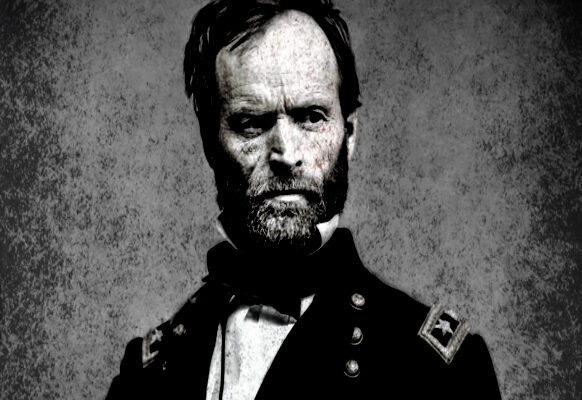
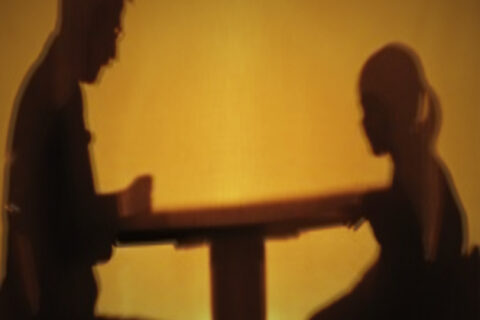
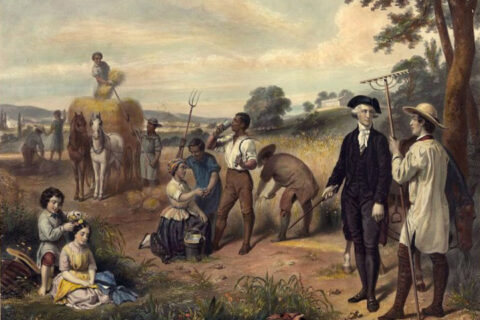
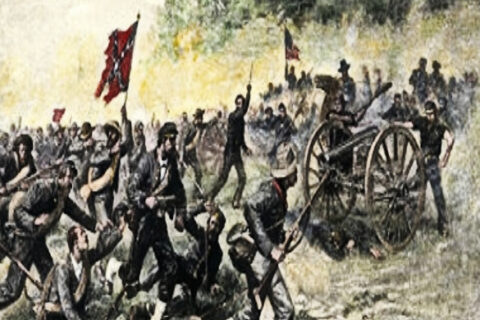
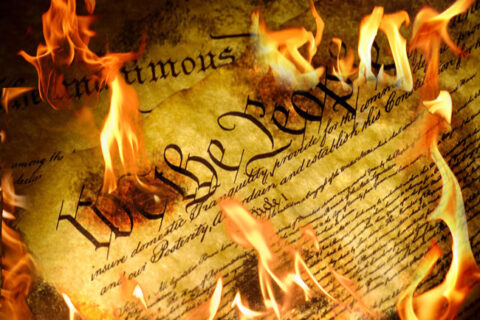
I’ve read a good number of Jackson biographies, and a daughter of the Confederacy recommended to me Robertson’s as the best. I now have no desire to read it.
Sherman loved the South almost as much as Eisenhower loved Germany!
The idea occurred to me to work the following into the article as I was writing it, but I ultimately thought better of it, opting to save it for the comment section should an opportunity arise to include it here. You’ve provided that opportunity in the latter part of your comment, and I thank you for that.
My April, 2021 article, Notes on the Origin of “Wage Slavery”, reveals in part that the first probable American usage of the term “Wage Slave” was in an 1864 speech advocating distribution of Southern plantation lands to small holders from the north titled, Homesteads for Soldiers on the Lands of Rebels, by George Washington Julian, wherein Julian said in part:
How the foregoing relates to the O.P. may be summed up in Sherman’s demonstration (in his own words) of his “Love for the South” and admiration of her people, in a letter from the field to his brother, U.S. Senator from Ohio, John Sherman, the relevant portions of which I share without further comment:
German Confederate,
I had read a book called, from memory, The execution of Eddy Slovac, it’s about a young man whom was rejected by the US military in WW2 and labeled 4F. He went on to marry and have a child, then towards the end of WW2, all 4F rejects were called to service and Eddy got put on the front Lines, he just froze in terror soiling himself in combat. He deserted and helped a Canadian platoon well out of harms reach. The US Army wanted to make an example out of him and executed him, the last time that happened was in the WBTS if I remember correctly. The reason i bring this up is, he had written President ‘Eisenhauser’ for a pardon. I thought that was apropo at the time of reading, Isn’t that a Jewish Sir name? He was shot in the Heart by firing squad. Well written book.
Anyway, I thought I would share that book with you.
God Bless you Sir.
I saw the movie with Martin Sheen in the title role. If he was Jewish and asked Eisenhower for clemency it’s hard to believe he wouldn’t have gotten it. If you read the Patton Papers (post-war section) you’ll learn there isn’t anything ‘Ike’ wouldn’t do to position himself for the Presidency. Patton was disgusted by it.
Thank You Sir for your articles.
On my Confederate Flag office wall is a quote!
“Not having a goal is more to be feared than not reaching one “
Dixie will be Avenged!
God Bless all your good works!
Great quote, and very true! I have a story to share that you may or may not have heard before, but that relates in either case:
I believe it was one of R. C. Sproul’s sermons I had occasion to listen to many years ago from whence the following derives. In the sermon Dr. Sproul told the story of his and his wife’s attendance, along with one of their grandchildren, at a parent-teacher conference (in the absence of the child’s parents who were away on business). According to the story as I recall it, the school had, that very year, adopted a new program which would, in certain and sundry ways, revolutionize its approach to teaching and learning, as well as curriculum content. I believe this was a private school as well. Anyway, the boy’s teacher in the story was practically fresh out of college and unmarried as I recall, and she was apparently very enthusiastic (giddy, even) about the new program and the opportunity of her participation in it. Which enthusiasm seemed to the Sprouls to be misplaced given the nature of the changes being implemented for no good reason readily apparent to them. At some point in the meeting Dr. Sproul asked the teacher a very direct, to-the-point question per his concerns. Namely, “what is the end goal of these revolutionary changes [to curriculum and methodology]?” Sproul’s simple question apparently baffled the teacher, rendering her speechless, because, according to Dr. Sproul, “she did not know what the goal of it was, and that horrified my wife and me!”
That story resonated with me when I first heard it, as it does to this day, because it gets to the issue of doing a thing or things *for the sake of it*, which is a common practice amongst those of a progressive bent, and is quite irrational and dangerous when you think about. Not knowing (or even caring) what the goal of doing a thing is, is equivalent to “not having a goal” you’re aiming at to begin with, and “is more to be feared than not reaching one,” as your quote so succinctly puts it.
Thanks for the comment, sir. That you have a Confederate wall in your office warms my heart!
Mr. Morris, you should have linked your Christmas eve article of a few years back too.
Sherman really Loved looting the South!
I had left some comments about Sherman’s post WBTS activity on that thread thinking it happened in 1906 after the S.F earthquake, according to your article Sherman died in 1891, so I revisited the book and sure enough the author doesn’t make the timetable clear, what is clear is Sherman took orders from the Governor of California named Mr. J. Neely Johnson. This search engine has been disabled, thank God i still have ID on the catch of this device, the device has not been upgraded to the new operating systems for seven years, so it’s probably got to do with that, I think Its easily attacked too, the web pages have been unlocked.
Anyway, can you tell me what years that Governor was in office?
Yeah. I actually considered asking our editor to repost that item this past Christmas Eve, but ultimately thought better of it.
I could not have prior to reading your comment and perusing Johnson’s Wikipedia page in search of the answer, but he was elected in 1856 (at 30 years-old, he remains the yountest governor ever elected in CA) and occupied the office through 1858. There is also good information concerning Sherman’s service under his administration on the page you might be interested in if your device will process the link and bring the page up:
https://en.m.wikipedia.org/wiki/J._Neely_Johnson
Thanks for the comment, sir.
Thank you for the reply Mr. Morris.
My thoughts and prayers are always with you and the Southland.
God Bless you Sir.